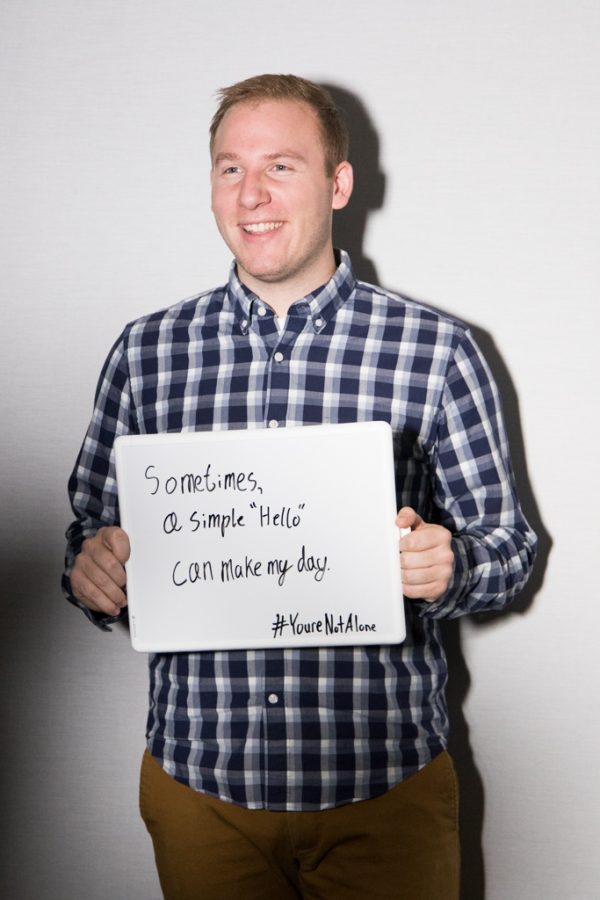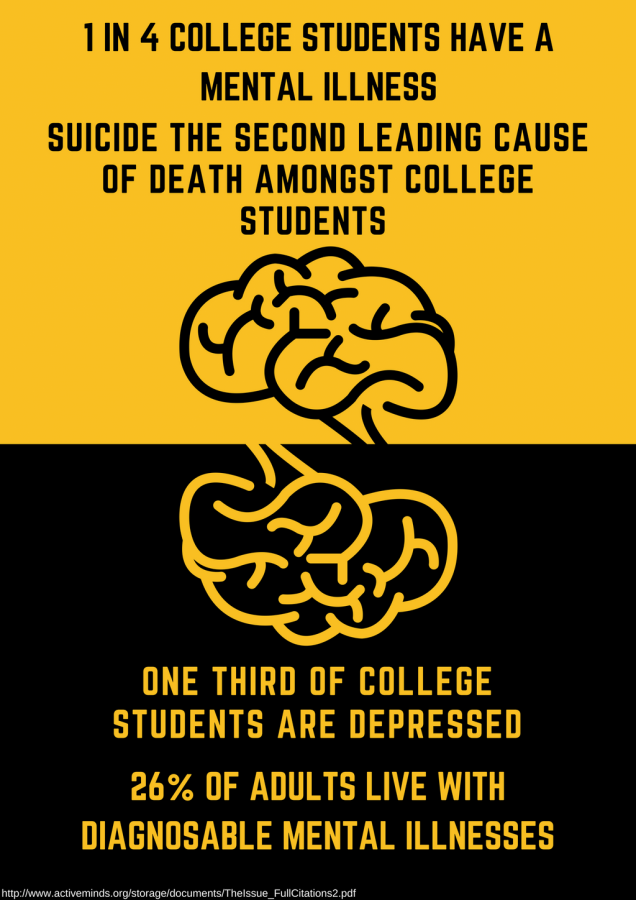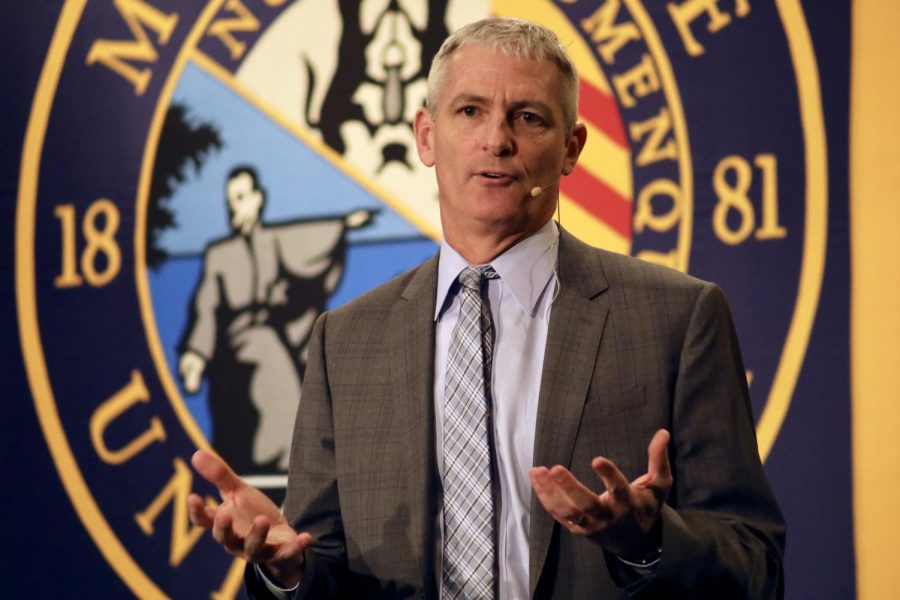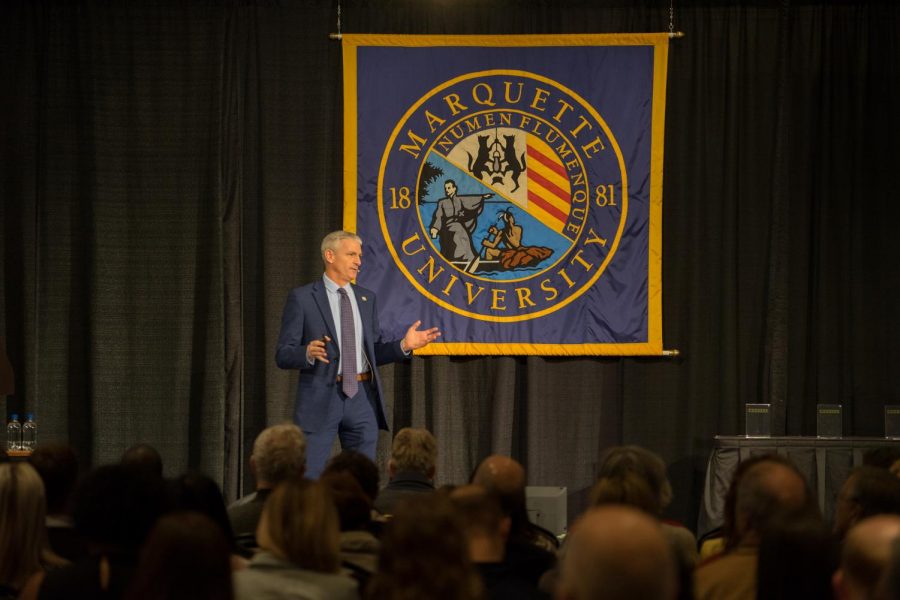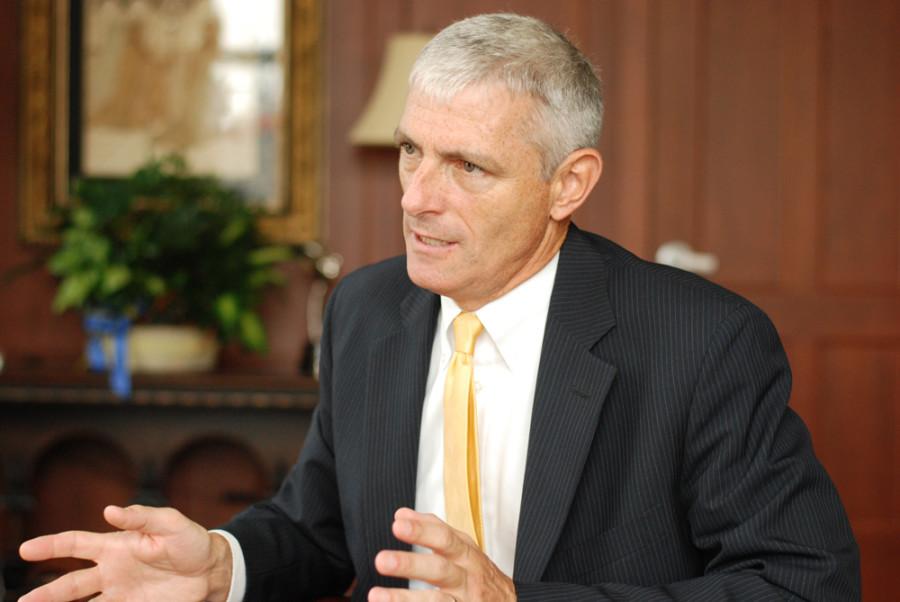Marquette’s Varsity Theatre hosted Nadine Burke-Harris, a physician and author, Feb. 10. The event highlighted Burke-Harris’s work regarding childhood trauma and adversity. Boswell Book Company and REDgen, a non-profit organization in Milwaukee, sponsored the talk.
REDgen’s mission is to advocate for the mental health and well-being of youth. The organization’s president, Amy Lovell said resiliency isn’t something an individual is born with, but it’s something that you can develop and grow when things get tough.
“We all have adversity. We all come upon bad times and resilience is the ability to bounce back from that, even stronger or better than you were before,” Lovell said.
REDgen Executive Director Jim Flint said everyone encounters a mental health challenge, whether it is a personal challenge or through somebody they know.
“I think it’s something that we all need to break down the stigmas and have more conversations to really support each other,” Flint said.
Flint said it’s more comfortable for people to accept physical illness because people’s behavior is not questioned as much as it would be from a mental illness.
“So I think we’re working hard to try and even the playing field and recognizing it all as just health,” he said.
Active Minds is a national organization that encourages positive conversations about mental health awareness. Emily Rafalik, a senior in the College of Arts & Sciences, is on the executive board of the Marquette chapter. She said because mental illness is not visible, people don’t believe it.
“The way we talk about it, we don’t see it as something important,” Rafalik said. “Like if you have a broken arm, someone will believe you. But if you say ‘I’m not feeling well today, I’m feeling anxious,’ you are still expected to go to class. You are still expected to be 100 percent.”
However, Burke-Harris said in her speech she believes we are standing on the cusp of a new revolution.
Burke-Harris studies connections between lifelong illnesses and toxic stress within her young patients and their families. Burke-Harris ultimately discovered that childhood stress changes neural systems and lasts a lifetime.
“We have to practice self care. Because if there is one thing that I learned from all this research, it’s that self care is not selfish. It is mandatory,” Burke-Harris said.
“It’s been a misconception for awhile,” Rafalik said. “Mental health is not mental illness. Everyone has mental health.”
Lovell said she thinks the stigma started when mental health got separated from physical health.
“When it became physical health versus mental, instead of just health and wellness because it’s continuum, I think it just had originated a long time ago and people carried shame because there’s no shame if you have other illnesses,” she said.
Lovell said today, people are more likely to own it and say what it is.
Flint said we need to normalize mental illnesses and one way people can do that is by talking about their own experiences.
“I think the more we can talk about it, it really helps people feel more comfortable,” Flint said.
Rafalik said she hopes to see the day where not going to class because of a panic attack will be acceptable.

